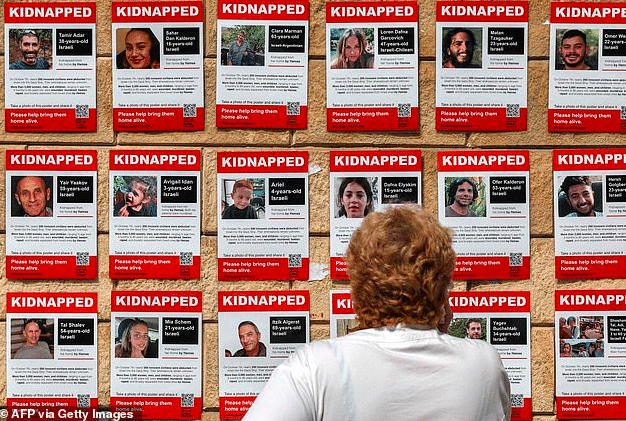The last time Ruby Chen heard from his 19-year-old son Itay was a 6:40am message saying his military base was under rocket attack. His father was just waking up to news that Hamas militants had launched a surprise attack on Israel.
‘That was 12 days ago,’ the New York-born father-of-four told DailyMail.com. ‘That was the last time we had any communication with him.’
Itay, who holds dual U.S.-Israeli citizenship, is among more than 200 Israelis believed to be held hostage in Gaza by Hamas terrorists or other extremist groups.
The crisis has triggered an extraordinary response among the Israeli population, uniquely equipped by decades of war to deploy skills learned in the security services or tech industries.
A campaign to keep the hostages’ plight in the headlines has drawn 1000 volunteers together, coordinating international protests and social medial campaigns from the glitzy offices of a law firm in a Tel Aviv high-rise tower block.
And across the city there are at least two efforts by tech experts to use the latest in geo-location technology and artificial intelligence to find clues from videos posted by Hamas that might aid a rescue mission.
Karine Nahon, an academic in information science, is one of the leaders of a team poring over video footage posted online by Hamas. They are using A.I. coupled with facial and voice recognition software to identify the missing and zero in on locations.
‘The government right now relies on the information that is coming from these rooms,’ Nahon told Reuters.
Some 1500 tech experts are working in a war room set up in Tel Aviv Expo Center.
View the full article at DailyMail.

